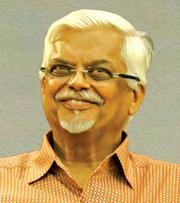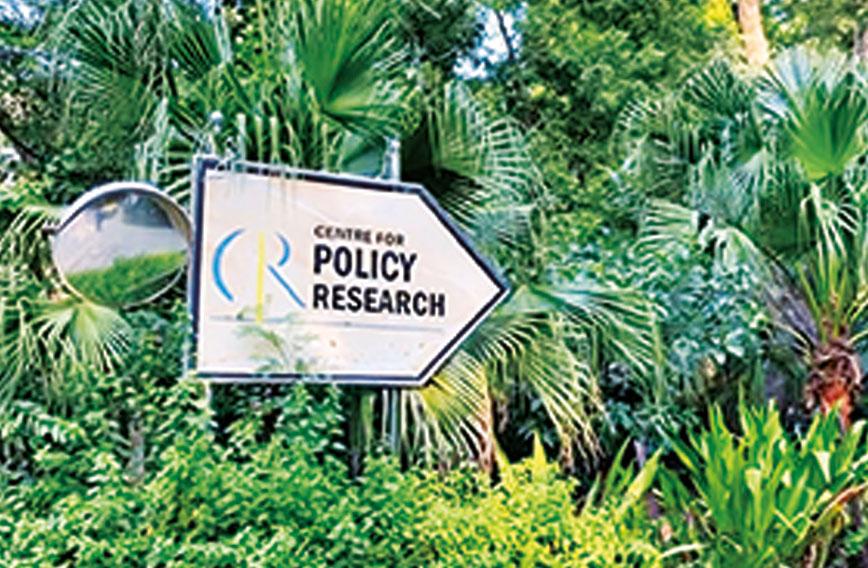
SANJAYA BARU
A few years ago I had written in these very pages of Civil Society a column titled “Funding the Indian Think Tank”. I was commenting on a controversy raging at the time on the issue of Indian think tanks getting foreign funds. That column followed a 2013 column I had written in Business Standard titled “Indian Minds, Foreign Funds”. Both columns noted the fact that India’s premier think tanks and research institutions find it easier to raise funds abroad than at home.
Be it owing to a bureaucratic and feudal governmental system or a miserly and disinterested corporate sector, research across most disciplines in the sciences, social sciences and even critical technology sectors gets poorly funded in India. If Indian authorities are worried about foreign funding they ought to help encourage greater domestic funding of research rather than merely targeting foreign funding. For, after all, India does produce many keen minds interested in pursuing research who find funding a key constraint, apart from other bureaucratic constraints.
India’s private sector hardly invests in research even in the fields in which it is commercially engaged so for it to be interested in other unrelated fields, that too of little commercial value, is far-fetched. Nation-building requires long-term commitment to research and its funding. It should be the duty of both government and the corporate sector to fund research in a substantial manner,
and ensure that there is adequate freedom for the blooming of a thousand flowers. If government and domestic corporates will not fund research and foreign funding is not allowed or is viewed with suspicion and discouraged, who then will fund research?
The subject of foreign funding of research has once again attracted public attention in the light of the Central government’s decision to suspend the registration of the Centre for Policy Research (CPR), New Delhi, for a period of 180 days. This follows the Centre receiving an income tax notice and a query as to why its registration should not be cancelled. The CPR has defended itself clarifying that all due procedures have been followed in the matter of accounting for its revenue and expenditure and in the auditing of its budgets.
Having been a member of the CPR governing board in the past, and knowing many members on the board today, I can certainly say that the Centre would have complied with the law and done nothing illegal. However, apart from the matter of tax compliance there is the more opaque issue of dependence on foreign funding that many enthusiasts of the present dispensation in New Delhi draw attention to. On this matter CPR has made itself vulnerable in recent years. It has been reported that in the period 2016-21, CPR received a total funding of over Rs 140 crore for various research projects and of this about Rs 122 crore was from ‘foreign’ — multilateral, bilateral and non-governmental — sources while a mere Rs 14.54 crore was raised at home, mainly from government sources.
I was invited to be a member of the CPR governing body in 2003. Three distinguished civil servants chaired the board during those 13 years — P.K. Dave, K.C. Sivaramakrishnan and Eric Gonsalves. I stepped down from membership of the board in 2016. In 2003, when I had joined the board, domestic sources of funding accounted for about 70 percent of the budget, while foreign funding accounted for 30 percent. By the early 2010s this ratio had been reversed with foreign funds accounting for more than 70 percent.
At board meetings I would repeatedly draw attention to this trend and recommend that the Centre be encouraged to find more domestic sources of funding. Some of the Centre’s faculty were able to raise funds from the Central and state governments and some business leaders — Rahul Bajaj, Gita Piramal and Nimesh Kampani — also stepped in to help. Despite these attempts it seems CPR remains excessively dependent on foreign funding.
While attempts to alter the ratio must continue, with more government and private sector funding being made available for research, the targetting of CPR by the Central government is suspect, especially in the context of the encouragement various ministries and NITI Aayog have been giving to foreign-funded think tanks and consulting firms. Functionaries from the government have happily moved from their government offices to western lobby groups, funding organizations and think tanks, ministers of the government are happy to empower their forums with their presence, and yet the government will not trust Indian citizens when they conduct research transparently and publish their work for all to read.
Call it hypocrisy, schizophrenia, political witch-hunting or what you will but there is no consistency in the Modi government’s approach to foreign institutions in the field of research. The same goes for teaching. The government’s new higher education policy has granted greater academic autonomy to a foreign university than what bureaucrats and politicians are willing to grant Indian universities. The Association of Indian Universities has raised a question on this in the light of the Central government granting greater autonomy to an Australian university that proposes to open a campus in Gujarat than what is at present granted to even the best Indian universities.
One aspect of the government’s attack on CPR that has not received adequate attention is the fact that so many ministers in the Modi government, including Smriti Irani and Anurag Thakur, have travelled overseas, as Members of Parliament when they were in the Opposition, on programmes at US institutions that were in fact hosted by CPR. The academic programme for parliamentarians on which scores of MPs have gone to the US and UK, with Ms Irani taking great pride from her visit to the Yale University campus, was hosted by CPR with private sector funding.
While I am in favour of increased domestic, national funding for research and also support scrutiny of the activities of foreign-funded research and teaching institutions, the political hounding of a contrarian institution does not do democratic India any good.
Sanjaya Baru is a writer and Distinguished Fellow at the United Service Institution of India.
Comments
-

Dr. Narasimha Reddy Donthi - April 12, 2023, 1:15 p.m.
With contestation of ideas and solutions becoming a norm, think tanks focussed on policy change are always suspect as to where their interest lies. If its foreign funded the antenna raises a little higher. Government of India was always selective in targeting think tanks, and not on principle. Not even foreign funded Indian think tanks, but foreign think tanks, entirely funded by foreign funds have been sitting in policy and decision-making bodies for a quite long period. There is not a murmur from fellow CSOs, not only in this case, but also when Greenpeace, Oxfam and others are targeted, becoz they are not linked with local civil society. The 'politics' of knowledge is being played at higher level. But the aftermath of a resultant 'regulatory' scenario is killing independent Indian civil society. And, that's the problem.






